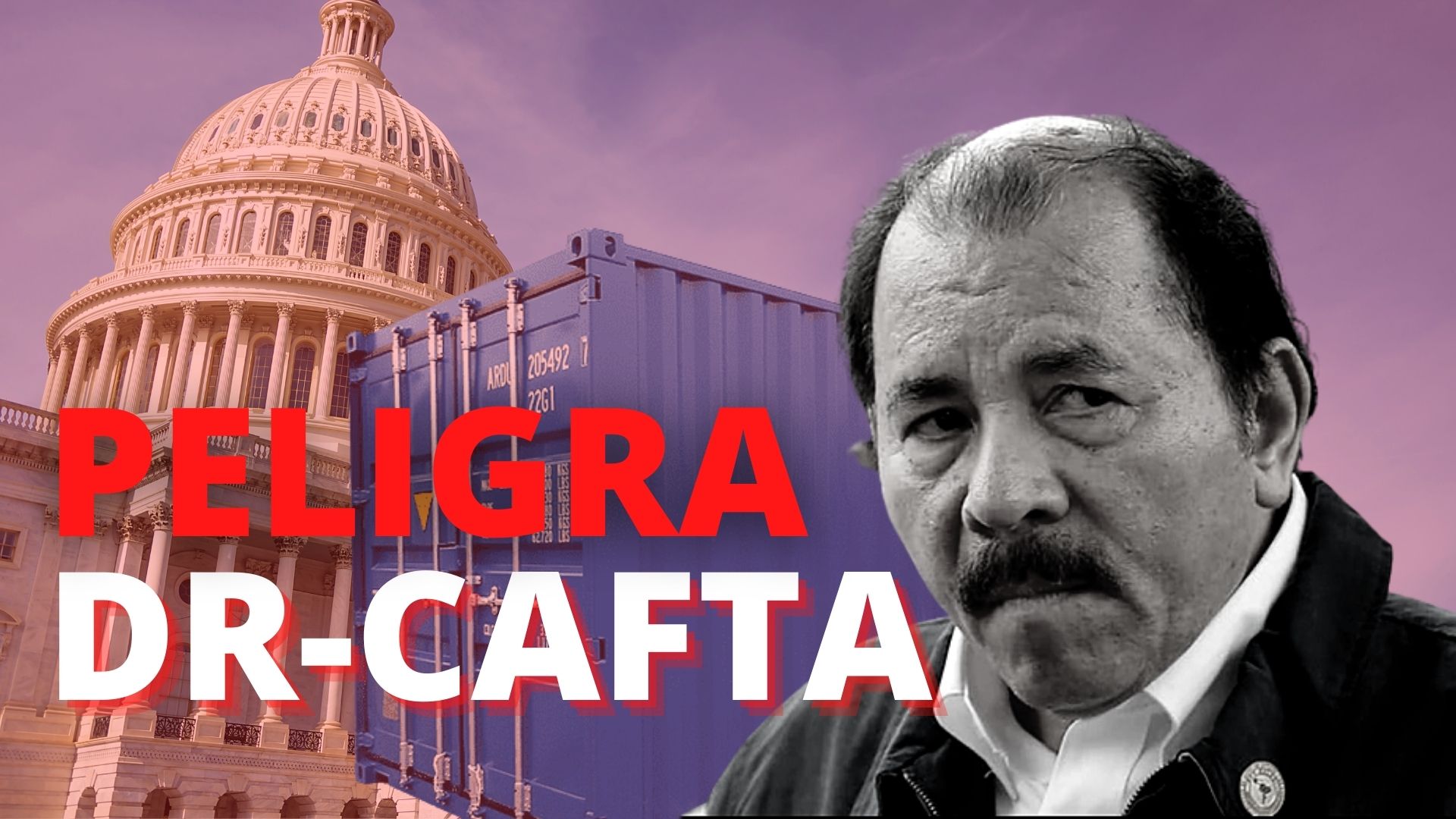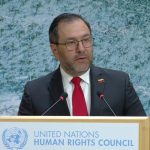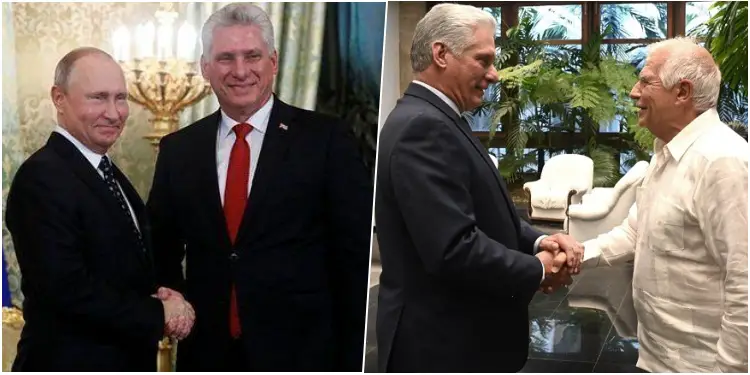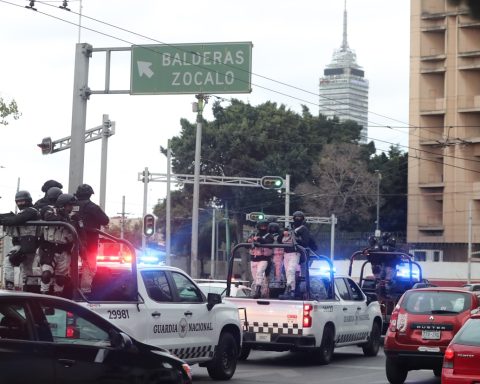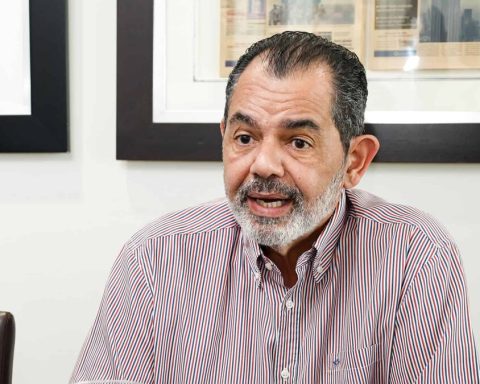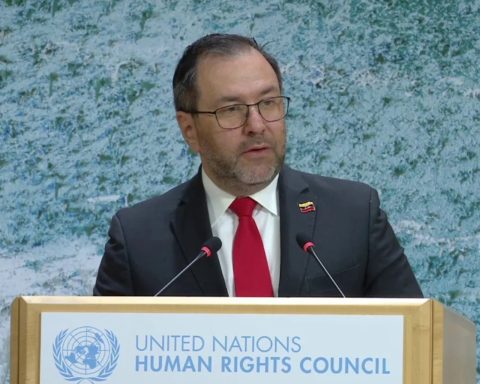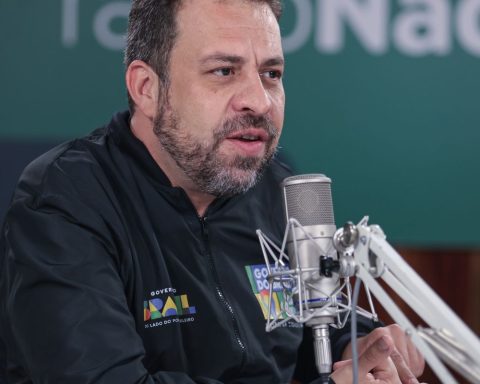The dictatorship of Daniel Ortega and Rosario Murillo, even with its hackneyed discourse of alleged anti-capitalism, continues to benefit from the Free Trade Agreement with the United States and the Dominican Republic (DR-Cafta), but the boom in trade with the northern power could be coming to an end, because, for violating at least 3 chapters of said treaty, it could be reviewed soon, which would lead to the immediate application of the Renacer and Nica-Act laws.
A study prepared by the international organization for the promotion of democracy, the Inter-American Dialogue (DIA), which is based in Washington, USA, reveals that the Ortega-Murillo dictatorship has committed flagrant violations of Chapter 12, referring to access to market for financial institutions; 16, violation of the labor rights of Nicaraguans, especially workers in free zones and the gold mining industry, products that are almost entirely exported to the United States.
In addition, they have violated Chapter 17 of DR-Cafta, on respect for environmental laws, binding with the trade agreement, since the regime has caused great environmental and social damage in indigenous communities where it has authorized gold exploitation, causing usurpation. of communal lands, human displacement and death.
Nicaragua “has increased its trade with the US since the agreement entered into force”, going from 35% to 47% in the case of exports, and from 20% to 27% of imports. It is one of the countries that has benefited the most from the Treaty and the only one questioned for violating it.
Related news: Free Trade Zones in Nicaragua: Exploitation, bad treatment and bad pay
Manuel Orozco, director of the Migration, Remittances and Development Program of the Inter-American Dialogue, explained to Article 66 that, as a consequence of the violations of DR-Cafta, the State of Nicaragua must be held responsible, in this case, the dictators Ortega and Murillo and the offending or accomplices companies. He explained that “Section 3 of the RENACER Act grants authority to the US President’s Administration to act in relation to Nicaragua’s participation in CAFTA-DR.”
In other words, establish “penalties” for each violation of the treaty and demand its correction, and if the Nicaraguan regime does not comply, a process of “renegotiation” of the treaty must be reached, which would change all the rules of the game to force the dictatorship to comply
“It is important to establish this process of penalization, compliance with the corrections or renegotiation, through a schedule and the staggering of the pressure, depending on the fulfillment of the agreements by the Nicaraguan regime,” explained the DIA official.
«Penalties»
Orozco pointed out that, given that the Ortega-Murillo regime has flagrantly violated those three chapters of the DR-Cafta, the first thing that the DIA study recommends, and it is what could happen in the coming weeks, is that the Executive of the United States introduce “immediately the corrective measures, before June 21, in the General Assembly of the OAS.”
Those measures include, “convening the Labor and Environment Committees, as stipulated in the DR-Cafta, so that Nicaragua responds and is accountable for the various violations. Said call must be outside of Nicaragua and must include civil society organizations that have concrete evidence of these violations.”
They also recommend “applying sanctions to the Financial Analysis Unit, (UAF), for freezing accounts, to the detriment of market access.” Well, this institution of the regime has become a center for “intelligence gathering (espionage) to denounce any citizen suspected of being a political threat to the dictatorship.”

Another suggested measure is to “introduce additional sanctions to the authorities of the Nicaraguan Social Security Institution (INSS), to fuel suppliers and transport companies that benefit from state investments in public works, which are financed with external loans”. .
Orozco explained that the study recommends that, if even with these measures, the regime does not correct, it should proceed to “fix fines to the Ministry of Labor (Mitrab), Ministry of the Environment and Natural Resources (Marena) and the Central Bank of Nicaragua (BCN)”. Also, “fine or penalize companies identified as ‘public-private partners’, which have kept the workers in the textile free zone unprotected, and the indigenous populations affected by the settlers.”
Related news: Sandinista government grants mining concession to Desminic company in more than 4 thousand hectares in Matagalpa
The international organization also recommends that the US Government punish companies that have participated in labor or environmental violations, eliminating their access to the international market. If with this second block of measures the regime does not correct, the US administration must apply “tariffs to the textile and mining sector of Nicaragua”, starting in 2024, and altogether “introduce additional sanctions to intermediary companies that continue to carry out economic operations”. with the dictatorship.
And, finally, Orozco points out, if Ortega does not “reconsider”, the next step would be to put “the renegotiation of the treaty into force.”
Related news: Ortega began to freeze bank accounts of the Church since last weekend and in several Dioceses
The Inter-American Dialogue official insisted that they are not proposing to eliminate Nicaragua from CAFTA-DR, since it is “politically and legally unfeasible” and would also affect the poorest in the country.
Orozco concluded by explaining that the US administration has an additional resource for human rights violations, which is President Biden’s executive decree 13851, which stipulates “specific sanctions for those who violate democracy in Nicaragua.”
